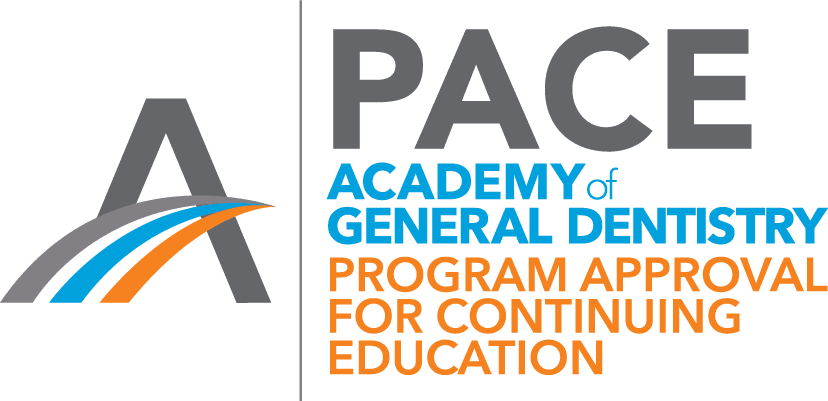VAGD Fall MasterTrack - Sold Out
October 18, 2024 8:30 AM - October 19, 2024 5:00 PM (EST)
Registration is closed
Friday: 8:30 AM - 5:00 PM
Saturday: 8:30 AM - 5:00 PM
Friday and Saturday: 16 Participation Credits - Code 250
YM Dental Lab, Chantilly VA
Course Topics and Objectives:
Course Description:
Materials and techniques to improve your conservative, adhesive dentistry
Our goal as dental professionals should be to maximize the lifetime of our patients’ dentition. Every time tooth structure must be removed with a handpiece, the lifetime of that tooth is reduced. Conservative dentistry aims to remove as little tooth as possible during restorative procedures in order to better extend the lifetime of each tooth. Adhesive dentistry helps us achieve this goal. Adhesive dentistry allows us to bond to tooth structure such that minimally invasive preparations may be performed. The goal of this course is to discuss conservative treatment options as well as the materials and techniques used to perform these treatments.
For direct restorations, diagnosis, isolation, caries removal, cavity preparation, use of liner, matrix and wedge placement, bonding technique, composite placement, and finishing and polishing will all be reviewed. For indirect restorations, this course will discuss how to select, handle and bond contemporary dental ceramic materials.
The presentation will be based on current evidence collected at the UAB School of Dentistry as well as the current literature, however, the information will focus on tips that can be applied directly in the dental clinic.
Course objectives
1. Discuss treatment guidelines for interproximal caries and caries removal endpoints.
2. Discover materials and techniques to promote a long lasting adhesive bond and create a well-adapted restoration.
3. Analyze matrix utilization and contouring instruments to achieve a tight and well-contoured contact.
4. Review the different types of dental ceramic materials
5. Choosing a ceramic material for anterior restorations
6. Preparation and design considerations for posterior crowns and bridges
7. Strategies to adjust, polish and cut off ceramic crowns
8. Review the indications for bonding dental ceramics
9. Present a protocol for preparing the surface of ceramic crowns (ie etching, sandblasting, priming, cleaning)
10. Classify the types of cements used for adhesive bonding
Prevention and non-surgical treatment of caries (2 hours)
Despite our best efforts to restore natural dentition with adhesive dentistry, all restorations are inferior to natural tooth structure and susceptible to secondary caries. This lecture presents a simple approach for treating caries based on the risk factors of our patients. We will discuss new products and techniques used to arrest caries (such as Silver Diamine Fluoride) as well as review time-tested approaches (such as fluoride-containing products and diet modification recommendations). This course if friendly for the entire dental team (including dentists, hygienists, and assistants).
Course objectives
1. Review four distinct types of high caries risk patients
2. Present protocols and techniques for treating each type of high caries risk patient
3. Review the evidence for fluoride
Treatment of anterior discolorations
Discoloration of anterior teeth can result from a disruption in mineralization of the forming tooth or from the process of caries on the formed tooth. Both dysmineralization and white spot lesions may be an esthetic concern for many patients. Resin infiltration and microabrasion are 2 different conservative treatments for these discolorations. This lecture will review clinical tips for case selection for both types of treatment as well as the steps to perform both techniques.
Course objectives
1. Review the clinical signs to determine which cases will have the best chance for success with microabrasion or resin infiltration
2. Review the clinical steps to perform microabrasion and resin infiltration
3. Present clinical cases with both treatments
Nathaniel Lawson, DMD, PhD
Nathaniel Lawson DMD PhD is the Director of the Division of Biomaterials at the University of Alabama at Birmingham School of Dentistry and the program director of the Biomaterials residency program. He graduated from UAB School of Dentistry in 2011 and obtained his PhD in Biomedical Engineering in 2012. His research interests are the mechanical, optical, and biologic properties of dental materials and clinical evaluation of new dental materials. He has published over 200 peer reviewed articles, book chapters, and research abstracts. He was the 2016 recipient of the Stanford New Investigator Award and the 2017 Innovative Research Fellowship both from the American Dental Association. He served on the American Dental Association Council of Scientific Affairs and is on the editorial board of The Journal of Adhesive Dentistryand Compendium. He has lectured nationally and internationally on the subject of dental materials. He also works as a general dentist in the UAB Faculty Practice.
Event Details:
The YM Education Center is a new, state-of-the-art educational facility in Chantilly, VA and home to YM Dental Lab. The venue is conveniently located 25 miles from Washington DC, with fully equipped, spacious educational areas designed to easily seat up to 40 attendees, socially distanced. You can tour the lab and education facility, here.
There is ample, free parking in front of the facility.
Registration opens at 8:00 am, course to begin promptly at 8:30 am.
Coffee, soft drinks and water will be available throughout the day, and a boxed lunch will be provided each day.
Event Cancellation Policy:
Full refunds will only be given up to 30 days before the course. If a refund is requested within 30 days of the course, a credit will be applied to the registrants account for use toward a future VAGD program.

Virginia AGD is designated as an Approved PACE Program Provider by the Academy of General Dentistry. The formal continuing education programs of this program provider are accepted by the AGD for Fellowship/Mastership and membership maintenance credit. Approval does not imply acceptance by a state or provincial board of dentistry or AGD endorsement. The current term of approval extends from June 1, 2023 to May 31, 2026. Provider ID# 219330

